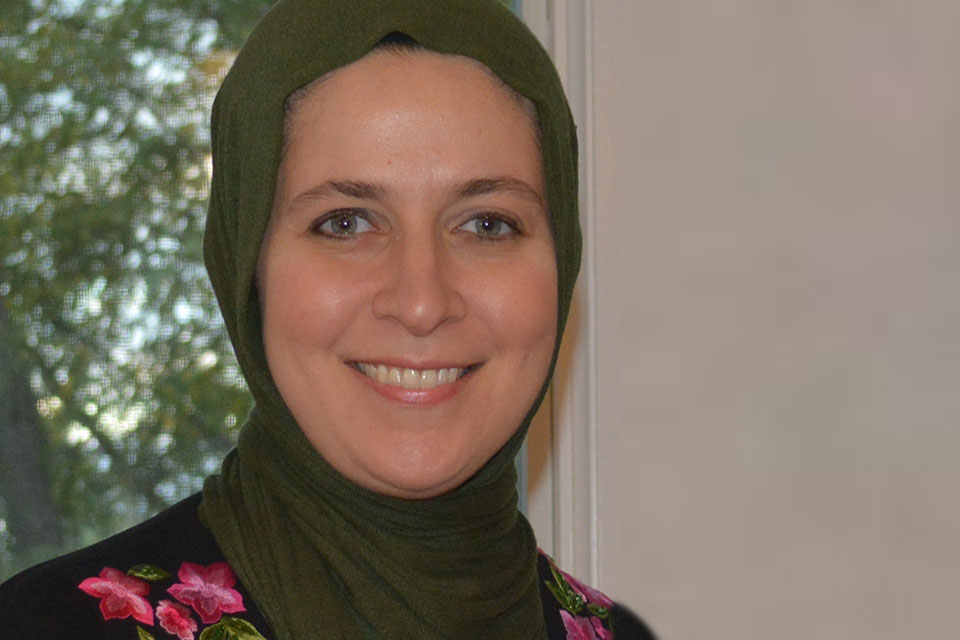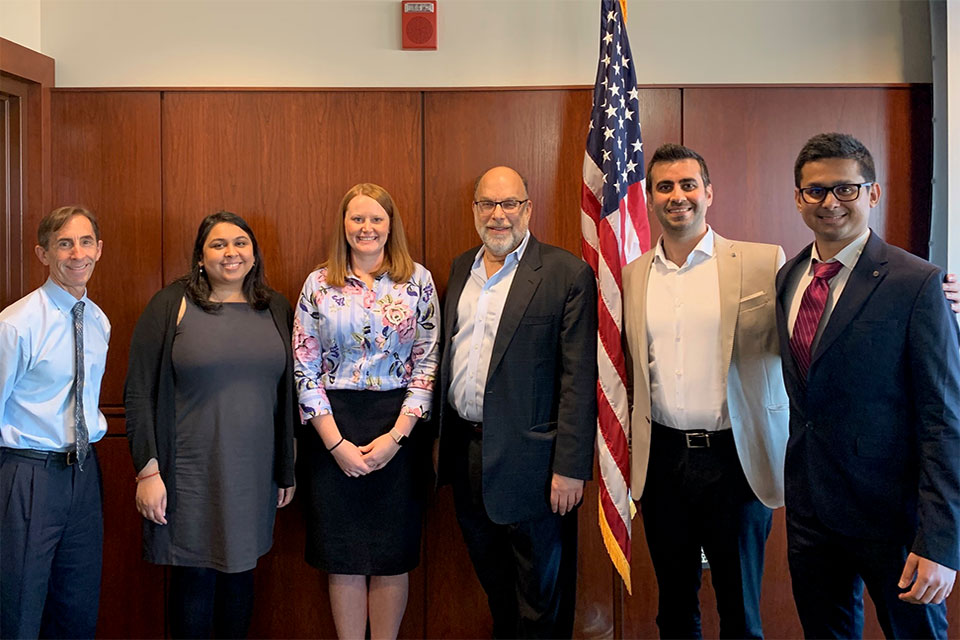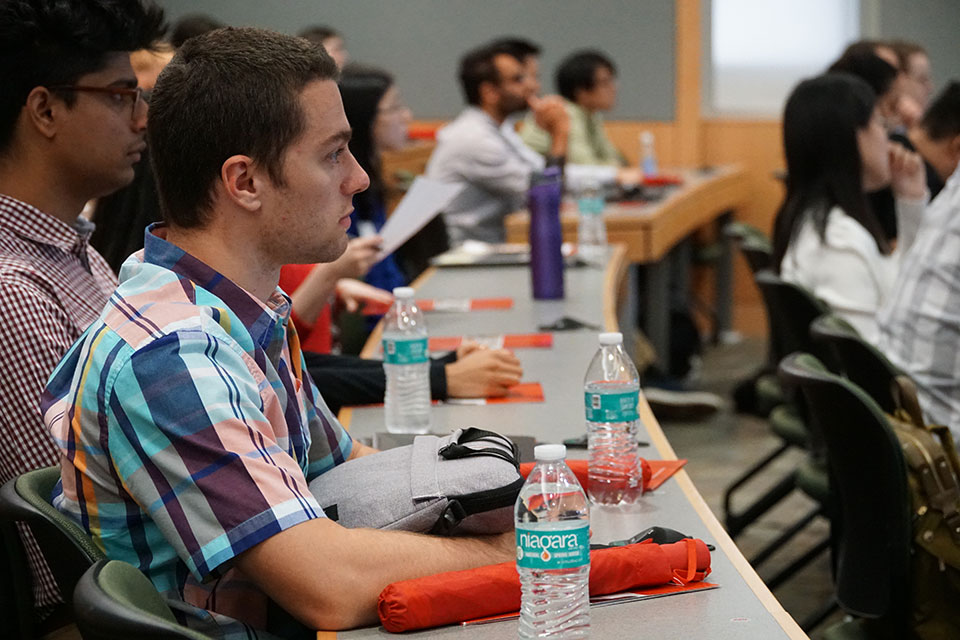SOP’s Qato Looks to Advance, Expand PHSR Graduate Program
Succeeding Dr. Frank Palumbo as graduate program director, Dr. Danya Qato plans to streamline curricular requirements, while highlighting accomplishments and enhancing career preparedness of students.

By Malissa Carroll
January 7, 2019
In 2018, the Department of Pharmaceutical Health Services Research (PHSR) at the University of Maryland School of Pharmacy named Danya M. Qato, PhD, PharmD, MPH, assistant professor in PHSR, as the new director of its graduate program. Qato succeeded Frank Palumbo, PhD, JD, professor in PHSR, in this role. Palumbo co-founded the internationally recognized graduate program with David Knapp, PhD, professor emeritus and former dean of the School of Pharmacy, and Robert Beardsley, RPh, PhD, professor and vice chair for administration in PHSR, in the 1990s, and served as its director from 2015 to 2018.
“Dr. Palumbo is an experienced leader who worked diligently to guarantee the continued growth and development of our top-ranked graduate program for the past three years and we thank him for his leadership,” says C. Daniel Mullins, PhD, professor and chair of PHSR. “As a practicing pharmacist, epidemiologist, and health services researcher, Dr. Qato is well-positioned to help our department achieve its vision to lead the advancement of pharmacist-scholars and equip future health services researchers with the knowledge and skills they will need to think critically and apply lessons learned in the classroom to solve real-world challenges. I look forward to watching both our graduate program and our students continue to grow under her leadership.”
Qato received her doctorate in health services research from the Brown University School of Public Health and a Doctor of Pharmacy (PharmD) from the University of Illinois. She also completed a Master of Public Health (MPH) with a concentration in international health and humanitarian studies at Harvard University. From 2015 to 2016, she was at the Institute for Community and Public Health at Birzeit University in Palestine, where she was a Fulbright Scholar and expert consultant to the World Health Organization. Her current research focuses on improving regulatory and policy tools to reduce use of high risk medications in vulnerable populations, environmental and global health systems development, pharmacovigilance, and mitigating health disparities.
“It is an honor and an immense responsibility to serve in this new role. I’m incredibly excited to help lead and support the continued growth of our department’s top-notch graduate program,” says Qato.
She adds, “As someone who is principally invested in supporting the academic success of PHSR students and trainees, I want to ensure that our students and postdoctoral fellows are active partners in research and teaching, and that they are given a voice in the process of program development and improvement. Their voices matter and have value, and by engaging in every facet of the program, students and trainees will be exposed to critical facets of their own education and training, which is an empowering and invaluable experience that will serve them well as they embark on their own careers.”
As the newest director of the PHSR graduate program, Qato has already identified three goals that she plans to achieve, and is currently taking steps to transform those ambitions into reality. Her first task to tackle: raising awareness about faculty, student, and trainee accomplishments.
“I want to elevate the public’s understanding of the science that underlies our research,” says Qato. “Our department is doing such important work to improve public health, health care delivery, and health outcomes – locally, nationally, and internationally – and I want the world to know about it.”
Moving forward, Qato plans to examine and streamline curricular requirements for the PHSR graduate program to maximize the value of student training, successfully see students through to their dissertation defense, and improve opportunities for collaborative and interdisciplinary student and trainee-led research. She also aims to enhance students and trainees’ career preparedness.
“As the job market for future health services researchers continues to diversify, it is our job as educators to ensure that our graduate program adequately equips students to compete for positions that fulfill both their personal and professional aspirations,” she says.
Qato will maintain her faculty appointments in PHSR, the Department of Epidemiology and Public Health at the University of Maryland School of Medicine, and the University of Maryland Institute for Global Health during her service to the department’s graduate program.



